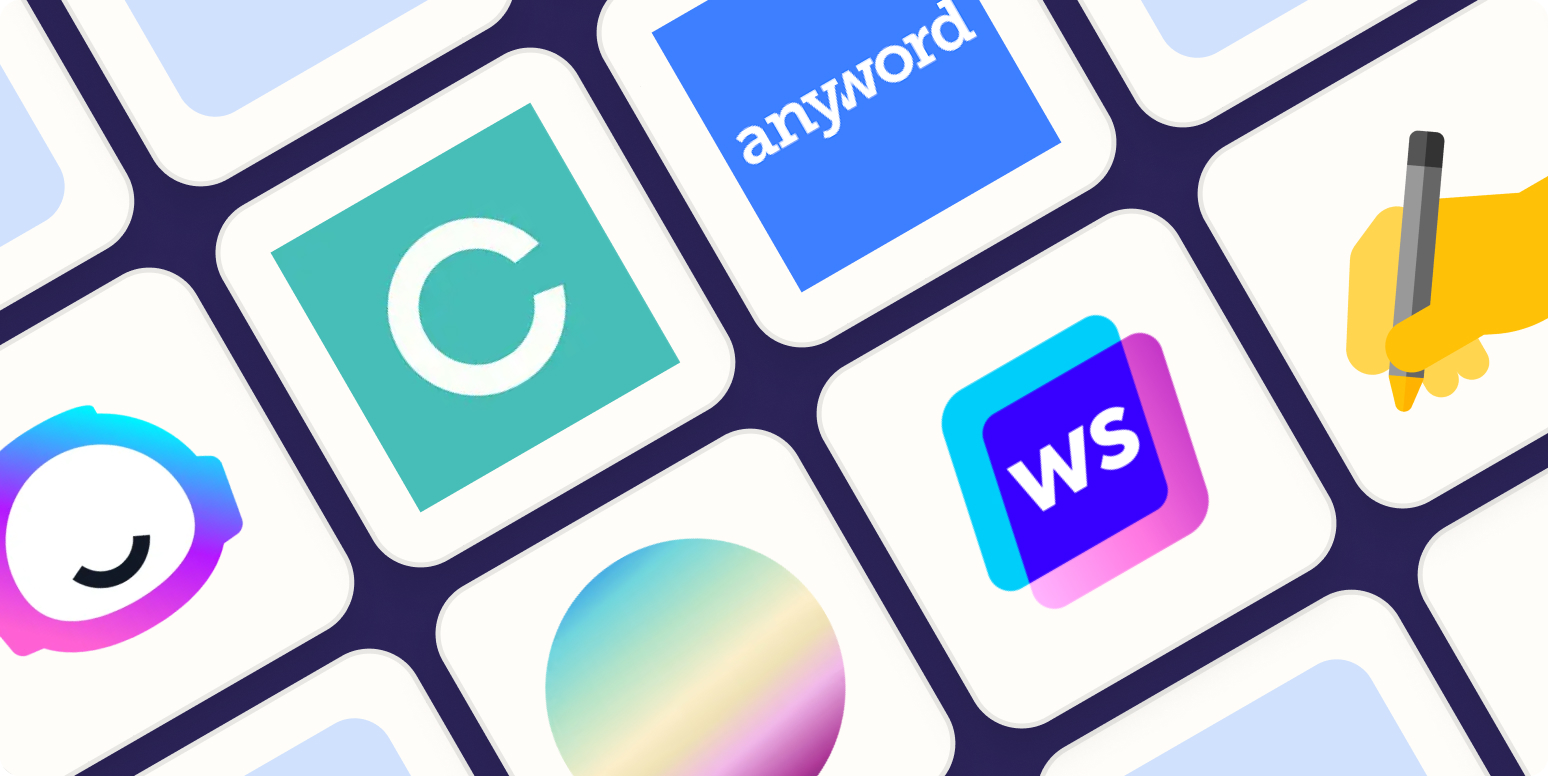AI Content Writer & Blog Generator: Revolutionizing Your Content Strategy
Imagine streamlining your content creation process by automating mundane tasks, freeing you up to focus on crucial decisions and innovation. We’ll also provide tips on effectively using AI blog writers to combine AI’s efficiency with human creativity. Additionally, discover how business students can use infographics to make data more engaging and memorable in school presentations. Dive in to revolutionize your content strategy with the perfect blend of AI tools and human touch!
How AI Blog Writing Software Works

Credits: zapier.com
Understanding Natural Language Processing is key to grasping how AI blog writing software functions. Natural Language Processing (NLP) enables machines to comprehend and generate human language. By analyzing vast amounts of text data, NLP identifies patterns and nuances in language, enabling AI tools to produce content that’s coherent and contextually relevant.
The learning process of AI tools involves training algorithms on large datasets. These datasets include a variety of writing styles and topics to help the AI understand different content forms. During training, the AI learns to mimic human writing by recognizing the structures and stylistic choices present in the data. This allows the tool to generate text that closely resembles human-created content.
Generating coherent and engaging content is the ultimate goal of AI blog writers. By leveraging advanced algorithms and continuous learning, AI content creators can craft articles that not only flow naturally but also maintain the reader’s interest. The precision in language combined with an understanding of context ensures that the produced content meets high-quality standards and keeps audiences engaged.
Pros and Cons of Using AI Blog Writers

Credits: netclues.com
AI in content creation brings several advantages. It can produce content quickly, making it perfect for maintaining a consistent blog schedule. AI tools can analyze vast amounts of data, identify trends, and craft well-structured articles based on that information. They’re amazingly efficient, reducing the time and effort humans need to spend on tedious tasks. Costs can also be lower since AI handles work that would typically require multiple people or resources.
However, AI blog writers come with limitations. They often lack the creativity and emotional depth that human writers bring to the table. AI may struggle with context, producing content that feels generic or disconnected from your audience. Issues like understanding nuanced topics or cultural sensitivities can also be challenging. Quality control is necessary, as AI can sometimes make errors in syntax or factual correctness, requiring human oversight.
Balancing AI and human input is crucial for successful content creation. While AI can handle repetitive and data-driven aspects, human writers should oversee final drafts to infuse creativity and ensure quality. This synergy allows for high efficiency and rich, engaging content. Finding the right mix of AI efficiency and human touch enables businesses to leverage technology without compromising on the personal connection that good writing fosters.
Advantages of AI in Content Creation
- Faster content generation
- Consistent quality and tone
- Cost-effective solution
- Scalable content production
- Data-driven insights
- Improved SEO performance
- Enhanced personalization
- 24/7 availability
Google’s Stance on AI-Generated Content
Google has clear guidelines on AI-generated content. The search engine giant acknowledges the growth of AI in content creation but emphasizes that the quality and value of the content must remain high. Content generated by AI tools should adhere to the same standards as human-created content. Google’s algorithms are designed to reward high-quality, original content that provides valuable information to users.
The impact of AI-generated content on search rankings can vary. If done correctly, AI-generated content can rank well, but it must avoid issues like keyword stuffing, plagiarism, and spam. Content that is purely created to manipulate search rankings without offering substantial value can be penalized. Properly optimized, well-crafted AI content that meets user intent can perform well in search rankings.
To ensure AI-generated content aligns with best practices, it’s important to focus on quality over quantity. Conduct thorough topic research, use AI to enhance rather than replace human efforts, and always review and edit content to ensure it meets Google’s quality standards. Utilizing tools to check for plagiarism and ensuring the content provides real value and answers to user queries can help maintain a positive impact on search rankings.
Tips for Using AI Blog Writers Effectively
Setting clear objectives is crucial when using an AI blog writer. Define what you want to achieve with the content, whether it’s driving traffic, increasing engagement, or educating your audience. The clearer your goals, the better results you’ll get from the AI tool. Provide specific guidelines and relevant keywords to help the AI understand the context and tone you’re aiming for.
Ensuring content authenticity is another key aspect. While AI can generate coherent and relevant articles, it’s important to review the output carefully. Check for factual accuracy and make necessary edits to maintain credibility. Personal anecdotes or unique perspectives can be added to give the piece a human touch and make it more relatable for the readers.
Combining AI and human creativity can yield the best results. Use AI to streamline and speed up the writing process, but don’t rely solely on it. Human writers bring creativity, emotion, and critical thinking that AI can’t replicate entirely. Collaborate with AI to outline drafts or generate ideas, then refine and enrich the content to ensure it resonates well with your audience.
Frequently Asked Questions
1. How does an AI content writer create articles?
An AI content writer uses algorithms and natural language processing to generate text that reads like it was written by a human. It analyzes existing content to learn patterns and structures, then applies that knowledge to write new articles.
2. Can I use an AI blog generator for any type of blog content?
Yes, AI blog generators can create content for various types of blogs, including tech, lifestyle, travel, and more. They can be customized to fit the tone and style of your blog.
3. Will AI-generated content rank well on search engines?
AI-generated content can rank well on search engines if it’s optimized for SEO. It needs to be high-quality, relevant, and include appropriate keywords, meta descriptions, and links just like human-written content.
4. How do I ensure the AI content matches my brand’s voice?
To ensure the AI content matches your brand’s voice, you can provide samples of your existing content. Many AI tools allow you to set parameters and guidelines that help the AI mimic your specific style and tone.
5. Is AI-generated content plagiarism-free?
AI-generated content is typically unique and original. However, it’s always a good practice to use a plagiarism checker to make sure the content isn’t too similar to existing online content.
TL;DR: AI blog writing software uses natural language processing and machine learning to generate coherent and engaging content. It offers advantages like efficiency and consistency but also faces limitations such as lack of creativity and potential content authenticity issues. Balancing AI and human input is essential. Leading AI writing tools for 2024 vary in features, performance, and pricing. Google’s stance on AI-generated content suggests cautious use, with potential impacts on search rankings. Best practices include setting clear objectives and combining AI with human creativity to ensure quality and authenticity.




